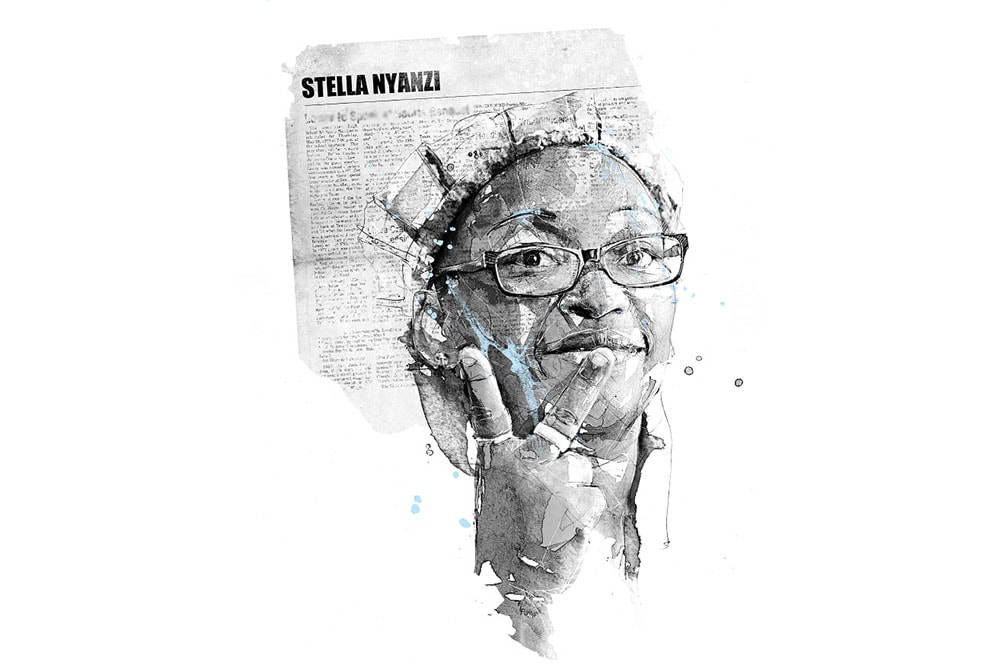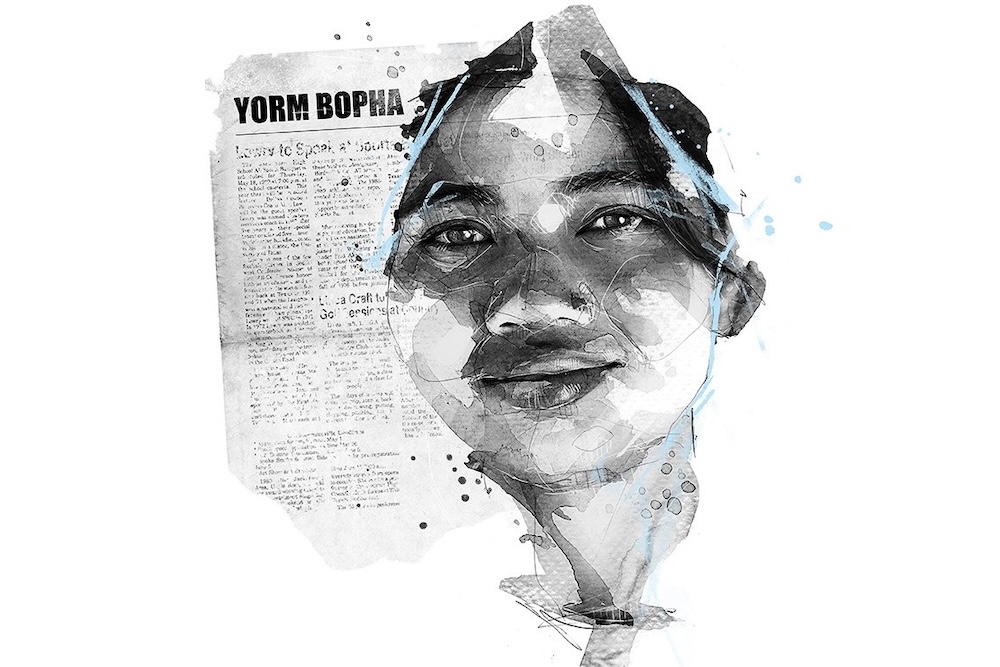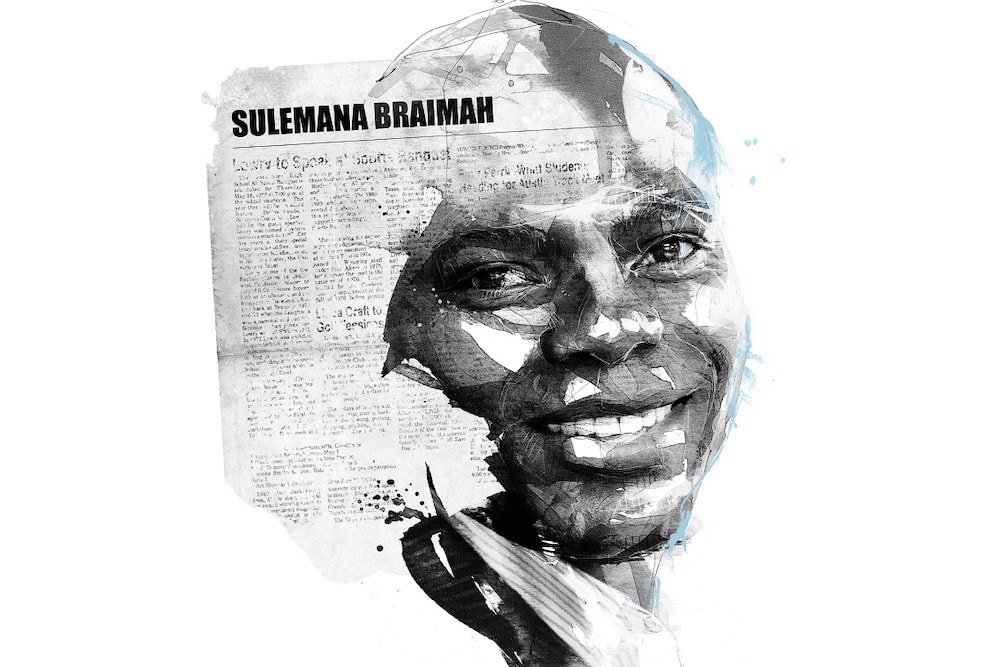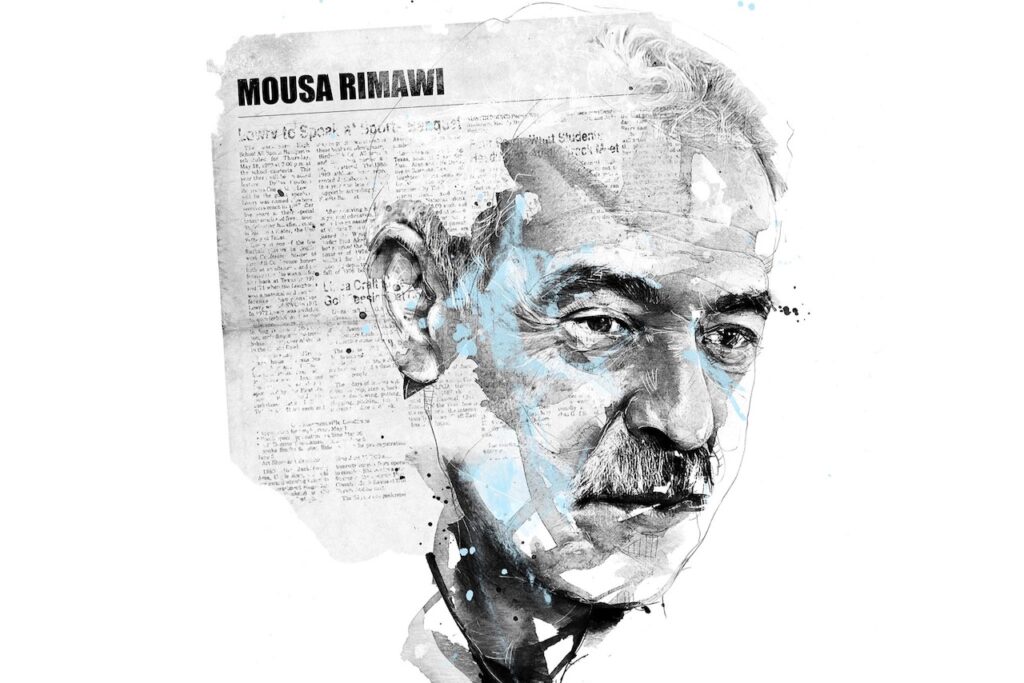Stella Nyanzi is one of Africa's most prominent gender rights activists; her colourful criticisms of President Museveni gained her international prominence, but also landed her in jail.
"Language is a tool and I refuse to be shut up by anybody"
Academic, writer and women’s rights activist, Stella Nyanzi is a fierce critic of Uganda’s president, Yoweri Museveni. She is also a proponent of “radical rudeness”, a traditional Ugandan strategy for unsettling the powerful through the tactical use of public insult.
Over the last two years, Nyanzi has subjected President Museveni to a series of public tongue-lashings, often using language that would make a trucker blush. These verbal assaults, which she usually posts on Facebook, are highly creative, sometimes sexually explicit and always impassioned. Her least expletive-laden attacks – describing the president as “a pair of buttocks” and the first lady (who also happens to be the minister of education) as “empty-brained” – landed her in jail in 2017. In November 2018, she was behind bars again for her creative use of insult; she currently faces a one-year prison sentence if convicted on charges of “offensive communication” and “cyber harassing” the president.
Her periodic spells in prison have hopefully come to an end, as Nyanzi and her family have moved to Europe, after she was accepted to the Writers-in-Exile Programme run by the German PEN Center.
In Uganda, expressing opinion freely is a risky endeavour. Under President Museveni (in power since 1986), violations of the rights to freedom of expression, assembly and association are rife. Members of the political opposition are sometimes detained and they are frequently denied access to public meetings and the media. Critical journalists are targeted for arrest, abduction and beatings at the hands of the security services; sometimes they are charged with treason. In their attempts to curb dissent online, the authorities also block the Internet during election periods; in 2017, the security services set up a team to trawl social media for any criticism of the government.
In addition to the suppression of political speech, there are also strong cultural taboos against talking openly and graphically about sex and sexuality. Some of these taboos are enshrined in law: homosexuality is illegal and sex education is banned in schools.
Nyanzi, who teaches at Makerere University and holds a PhD in sexuality and queer studies, talks openly – and colourfully – about sex, genitalia and politics. For this, she is adored by many of her fellow citizens but viewed with distaste by some of Uganda’s more conservative elements.
Sex, politics and “radical rudeness” all came together when Nyanzi was arrested in April 2017.
Earlier that year, Nyanzi had launched the #Pads4girlsUg campaign which crowd-funded for the purchase and distribution of sanitary pads to one million girls in Uganda. She had been angered by the government’s failure to fulfil a 2016 pledge to provide these pads to all schoolgirls (at least 30% of whom miss school when they have their period), and had decided to tackle the problem herself. Her campaign was hugely successful: donations poured in from across Uganda and abroad; the one million target was soon reached.
But Nyanzi also chose to vent her frustration at Museveni (and the first lady) via a string of stinging criticisms and insults posted on Facebook. For this, Nyanzi was arrested during a fundraising event at the Kampala Rotary Club on 7 April 2017. She was later charged under the 2011 Computer Misuse Act with “offensive communication” and “cyber harassment” of the president.
When she appeared in court, three days after her arrest, Nyanzi was defiant. According to a prominent LGBTQI+ activist who attended the trial, Nyanzi told the judge:
“Offensive communication? Who is offended? How long are Ugandans going to be silent because of fear … I am an academic, poet, a writer. I use my writing metaphorically. I have called the president impotent, a rapist, a pathetic pair of buttocks. He lied to voters that he would provide pads and Ugandans are offended that he is such a dishonourable man. It is we who are offended, not him”.
Nyanzi pleaded not guilty and was denied bail. The judge sent her to a maximum-security prison where she would spend the next 33 days. In jail, the authorities tried to force Nyanzi (unsuccessfully) to undergo a psychiatric examination; at times they also denied her access to her lawyer, writing materials and to visits from her children. Her detention made international headlines and a hashtag – #FreeStellaNyanzi – soon began trending on social media in Uganda and other African countries.
When Nyanzi was released, she was suffering from malaria. She said that she and her fellow inmates had been denied mosquito nets because the authorities thought they might use them to hang themselves. Her trial is still ongoing.
But Nyanzi’s harsh jail experience did not put an end to her “radical rudeness”. On 2 November 2018, she was arrested and charged (once again) with “offensive communication” and “cyber harassing” the president. This time, the charges were based on a poem she wrote and posted on Facebook for the president’s birthday, in which she suggested – using strong, graphic descriptions of Museveni’s mother’s birth canal – that Uganda would have been better off if the president had died at birth.
Nyanzi remained in custody from her first trial hearing on 9 November 2018 till her eventual sentencing on 2 August 2019. She was sentenced to 18 months’ imprisonment for the cyber harassment charges and acquitted on the second charge of offensive communication.
Anticipating vociferous protests from her supporters, the Ugandan authorities opted not to bring her to Buganda Road court. Instead they took her to the men’s wing in Luzira prison where she was forced to hear her sentencing via video conference. Not one to take things lying down, Nyanzi tore off her clothes, flashed her breasts on screen, while shouting profanities and showing her middle finger. Her supporters in court clapped and cheered her on.
In a long running court battle, Nyanzi has challenged her conviction asking for it be quashed and her punishment set aside on the grounds that the magistrate passed an illegal and disproportionate sentence.
Not to be outdone in their efforts to clampdown on the radical feminist, the Ugandan government has gone to the High Court to challenge the acquittal of Dr. Nyanzi on the offensive communication charge.
Illustration by Florian Nicolle




